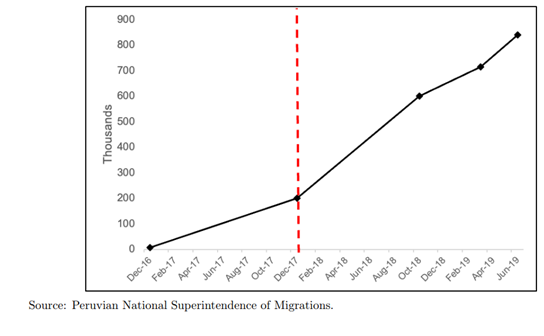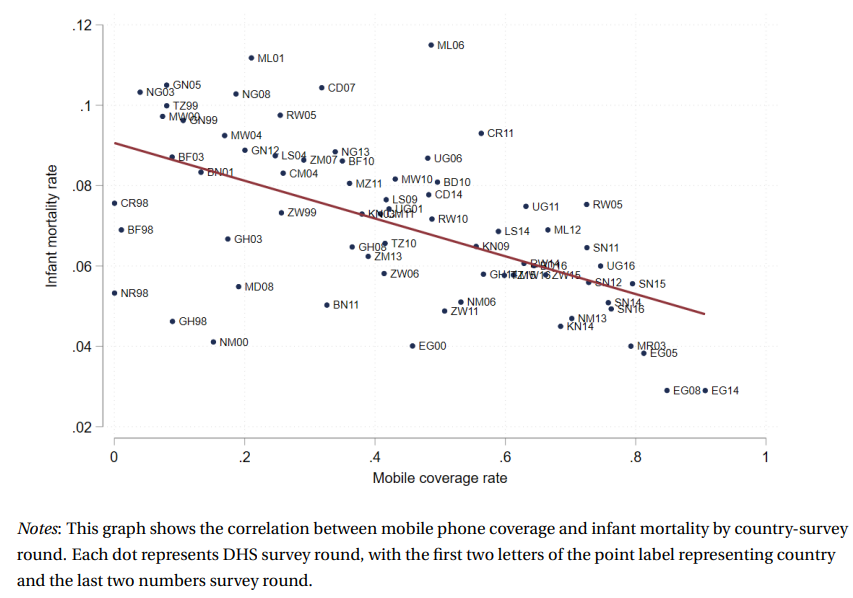 jcomp/Freepik
jcomp/Freepik
This blog is a biweekly feature highlighting recent working papers from around the World Bank Group that were published in the World Bank’s Policy Research Working Paper Series. This entry introduces five papers published from March 16 to March 31 on various topics, including immigration, trade and cash transfers.
The first two papers we introduce delve into topics related to immigration. In Attitudes and Policies toward Refugees : Evidence from Low- and Middle-Income Countries, Cevat Giray Aksoy and Thomas Ginn build an extensive dataset of attitudes and economic outcomes of refugee populations in low- and middle-income countries from 2005 to 2018. In Immigration, Labor Markets and Discrimination: Evidence from the Venezuelan Exodus in Peru, Andre Groeger and coauthors examine Venezuelan perceptions about being discriminated against in Peru.
-
Attitudes and Policies toward Refugees : Evidence from Low- and Middle-Income Countries examines how attitudes toward refugees are affected by the arrival and presence of refugee populations. The authors built and combined three main datasets that cover a large proportion of LMICs between 2005 and 2018. The first is a dataset on attitudes, the second dataset is on refugee populations at the sub-national level and the third dataset covers policies on camps. The paper assesses the effects of the arrival of large waves of refugees and finds little evidence that large refugee arrivals have a negative effect on average attitudes or economic outcomes in the short-term. There are also no significant differences between places with restrictive and inclusive policies, including de jure access to the labor market and opening camps.
-
Nearly 5.6 million Venezuelans are living abroad, and approximately 1 million are living in Peru (see figure 1 below). Immigration, Labor Markets and Discrimination: Evidence from the Venezuelan Exodus in Peru examines Venezuelans’ perceptions about being discriminated against in Peru and studies the impact of Venezuelan migration on local labor market outcomes, reported crime rates and attitudes. The results provide evidence that inflows of Venezuelans to particular locations in Peru lead to better labor market outcomes for locals, decreased reported crime, as well as improved reported quality of local services, greater trust in neighbors and higher community quality.
Figure 1: Evolution of Venezuelan immigrant stock in Peru

The final three papers we introduce in this roundup offer insights on pandemic related topics and infant mortality. In Cash Transfers after Ebola in Guinea : Lessons Learned on Human Capital, Damien de Walque and Dimitris Mavridis evaluate the effects of a program that transferred different amounts of cash to poor households in rural Guinea in the immediate aftermath of the Ebola pandemic. In How Resilient Was Trade to COVID-19, Ana Fernandes and coauthors examine which product supply-side characteristics affect the resilience of traded products to the COVID-19 pandemic. Finally, in Saving Lives through Technology: Mobile Phones and Infant Mortality, Kibrom Tafere and coauthors leverage mobile network expansion and survey data spanning two decades to study the impact of access to mobile phones on infant mortality in Africa.
-
Cash Transfers after Ebola in Guinea : Lessons Learned on Human Capital evaluates the effects of a program that transferred different amounts of cash to poor households in rural Guinea. The program’s aim was to improve children’s schooling and health outcomes in the immediate aftermath of the Ebola pandemic. In treated villages, households received cash conditional only on attending training promoting good health practices and schooling. The program randomized at two levels. The first level was between treated and control villages. The second level was within treated villages. School enrollment increased nationwide and rapidly in the aftermath of Ebola. The authors find that it increased significantly more in treated villages. The effect is higher for larger cash transfers compared to those with no cash transfers in treated villages. Despite the massive increase in school enrollment, there is no evidence of effects on learning measures.
-
Relying on monthly product-level exports by all countries to the United States, Japan, and 27 European Union countries from January 2018 to December 2020, How Resilient Was Trade to COVID-19 examines which product supply-side characteristics affect the resilience of traded products to the COVID-19 pandemic. Higher reliance on foreign inputs, China as an input supplier, and unskilled labor and a lower degree of complexity negatively affected exports as a result of COVID-19.
-
Saving Lives through Technology: Mobile Phones and Infant Mortality examines how digital technologies can expand access to health services to underserved populations. More specifically, this paper leverages mobile network expansion and survey data spanning two decades to study the impact of access to mobile phones on infant mortality in Africa. The analysis suggests that mobile phones significantly reduce infant mortality. A 10-percentage point increase in mobile coverage is associated with a 0.45 percentage point reduction in infant mortality. Improvements in health knowledge and behavior and health care utilization appear to be plausible channels.
Figure 2: Correlation between mobile coverage and infant mortality

The following are other interesting papers published in the second half of March. Please make sure to read them as well.
-
Spatial Misallocation, Informality, and Transit Improvements : Evidence from Mexico City (Zarate Vasquez,Roman David)
-
Individual Wealth Inequality : Measurement and Evidence from Low- and Middle-Income Countries (Hasanbasri,Ardina Roosiany,Kilic,Talip,Koolwal,Gayatri B.,Moylan,Heather G.)
-
Economic Integration, Industrial Structure, and Catch-up Growth : Firm-Level Evidence from Poland (Bastos,Paulo S. R.,Lovo,Stefania,Varela,Gonzalo J.,Hagemejer,Jan)
-
The Effects of Community Health Worker Visits and Primary Care Subsidies on Health Behavior and Health Outcomes for Children in Urban Mali (Kline,Dean Mark,Sautmann,Anja)
-
The Geography of Displacement, Refugees’ Camps and Social Conflicts (Coniglio,Nicola Daniele,Peragine,Vitorocco,Vurchio,Davide)
-
Late Banking Transitions : Comparing Uzbekistan to Earlier Reformers (Babasyan,Davit,Gu,Yunfan,Melecky,Martin)
-
Inclusive Refugee-Hosting in Uganda Improves Local Development and Prevents Public Backlash (Zhou,Yang-Yang,Grossman,Guy,Ge,Shuning)
-
Where Are All the Jobs A Machine Learning Approach for High Resolution Urban Employment Prediction in Developing Countries (Barzin,Samira,Avner,Paolo,Maruyama Rentschler,Jun Erik,O’Clery,Neave)
-
Effectiveness of Government Support for the Private Sector during the COVID-19 Crisis : Evidence from El Salvador and Georgia (Karalashvili,Nona,Tamkoc,Mehmet Nazim)
-
Proximity without Productivity : Agglomeration Effects with Plant-Level Output and Price Data (Grover,Arti Goswami,Maloney,William F.)
-
Roads, Electricity, and Jobs: Evidence of Infrastructure Complementarity in Sub-Saharan Africa (Abbasi ,Mansoureh,Lebrand,Mathilde Sylvie Maria,Mongoue,Arcady Bluette,Pongou,Roland,Zhang,Fan)
-
State-Owned Enterprises as Countercyclical Instruments : Experimental Evidence from the Infrastructure Sector (Herrera Dappe,Matias,Musacchio,Aldo,Pan,Carolina,Semikolenova,Yadviga Viktorivna,Turkgulu,Burak,Barboza,Jonathan)
-
Estimating a Poverty Trend for Nigeria between 2009 and 2019 (Lain,Jonathan William,Schoch,Marta,Vishwanath,Tara)



Join the Conversation